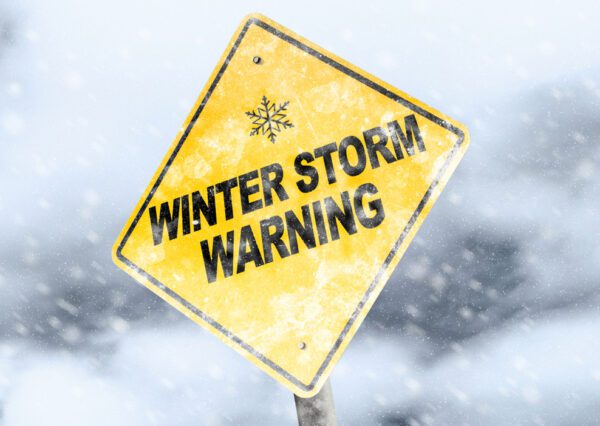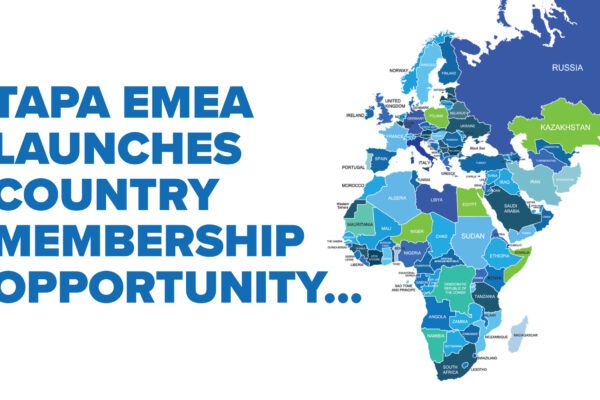
Winter of discontent (2)
At the peak of the coronavirus pandemic, nothing mattered more than the health and safety of our families and friends … and few thought things could get worse than they were.
As governments tried to ‘steady the ship’ in the wake of business closes, job losses and infrastructure lockdowns, the historic economic steps taken were always coming with a long-term promise of an ‘IOU’ but, back then, that was for another day. That day has already arrived … and some.
The economic fragility of many global economies emerging from Covid was no surprise, and businesses and consumers all expected tough times ahead, but no one foresaw an impending and ferocious war and the political and economic fallout it would produce.
As we head into winter, the immediate future feels more challenging, unsafe and uncertain than ever … and no one knows what’s coming next.
At the forefront of these challenges is a growing energy crisis caused by the war in Ukraine, which looks set to have a costly and highly disruptive impact on Europe as it heads into the cold and dark of winter.
To discuss what this means for supply chain resilience in the coming months, Vigilant invited the thoughts of four expert analysts from Risk Intelligence, Overhaul, BSI and Everstream Analytics for their take on the upcoming winter of discontent …
VIEW 1

Steve Bacot, LandRisk Manager, Risk Intelligence
Could the energy crisis cause more cargo crime and, if so, how?
Three factors are necessary to commit a cargo theft crime; capability, intent, and opportunity. The energy crisis and hike in inflation has increased the motivation/intent to commit theft. It may also drive otherwise honest citizens to consider theft or knowingly purchase stolen goods as their incomes are squeezed. This leads into opportunity which has always been present with thousands of trucks parked at non-secure parking areas on a daily basis. Opportunity can also be linked to supply and demand. There are more opportunities to distribute stolen goods to receivers and others looking for bargains such as half price diesel, cheap Christmas presents or food and beverages as household budgets feel the pinch.
It does not take much capability (knowledge, organisation, resources) to siphon fuel from a truck tank, slash a trailer curtain or snatch a parcel during a last mile delivery. So, this winter presents a perfect storm for cargo theft with all three enablers present to enable crime to take place.We have seen a huge increase in fuel theft incidents throughout Europe. Many incidents have included thefts in the region of 1,500 litres or more, siphoned from trucks or facility fuel storage tanks. Operators are left with the cost of the stolen fuel and also damage to truck fuel caps, or even the tanks themselves if they have been punctured to gain access.Right now, it may be hard to determine if the energy crisis has led to an increase in cargo theft. Historically we see a seasonal increase in the run up to Christmas. It may not be clear until the New Year if the energy crisis has had an additional impact on this seasonal trend.
What are the wider implications in terms of its impact on supply chain resilience or disruption?
Two implications to consider are the rise in activism/protest incidents, which can directly and indirectly impact shipments, and the theft of lower value items which are not normally targeted by cargo theft criminals.
We witnessed a large number of protests over the cost of fuel in many countries in Europe. These protests have included violent strike action by transport workers, slow moving convoy protests and blockades of logistics facilities. Soaring inflation has increased the threat of activism as port workers, transport workers and other industry sector workers simply strike for higher wages to pay their bills. The energy crisis has led to the increased use of fossil fuels as Russian gas imports dried up, which has galvanised climate activists who have blockaded main transit routes, oil and gas facilities and other state and commercial enterprises. Truck drivers can be caught up in protests, but the main, indirect impact is the disruption that protests and strike action cause. Trucks can be left stranded and forced to park overnight in non-secure parking areas with valuable cargo. We have also seen more incidences of theft and pilferage of less valuable items such as pallets, general equipment and even used oil destined for recycling. These items are usually stored in facility yards which are often not as secure as the facility buildings themselves, making companies vulnerable to this kind of theft.
Do you already see examples of this impact?
We have seen strike action in French airports, German maritime ports, UK railways, and fuel suppliers, leading to fuel shortages. Again, these incidents result in delays to shipments. In one incident, hundreds of pallets were stolen from a logistics facility yard in France.
What should companies be doing to lessen the impact?
Transport despatchers must have a ’ Plan B’ to account for delays and identify suitable places to park overnight. These sites may not be as secure as a TAPA PSR or EU SSTPA accredited site. So, despatchers must develop contingencies and use intelligence to identify the security measures available at less attractive sites, the local cargo theft threat and incident history to guide their choices. Facility managers should also review the security measures in place for their yards where fuel, trucks, pallets, and other lower value items are stored. Everything has value and a chain link fence alone may not deter criminals from making a few bucks at the expense of your facility.
How do you see the outlook for 2023?
We can expect more of the same into 2023. Even if the Ukraine conflict were to end quickly with a ceasefire, it is unlikely that Russian gas exports will resume, so the energy crisis will continue keeping the demand for stolen, cheaper goods high.
What advice can you offer?
Our risk mitigation advice does not change with regard to avoiding cargo theft. Now more than ever logistics providers should implement TAPA TSR and FSR requirements to the extent possible to reduce their risk of cargo theft.
VIEW 2

Joe Ryan, Vice President of Overhaul
This year has seen an explosion in the cost of living around the globe. Prolific Western government spending, supply chain disruptions from Covid-19 lockdowns to container shortages, plus the geopolitical earthquake of Russia invading Ukraine, has led to some of the worst inflation in decades, supply shortages and a food crisis that is already hitting the developing world. Chief amongst these contributing factors is the energy crisis, which is driving up costs for businesses and consumers across Europe and having potentially-catastrophic consequences for the developing world.
“All cargo will be at risk, and the temptation for workers in the logistics industry to gain by pilferage or facilitating larger thefts will be increased.”
The correlation between worsening living standards and increased crime is well understood, and in light of high inflation and fuel costs in the UK, leading police figures have already expressed concerns about rising crime – particularly acquisitive crime – driven by the increased cost of living. All cargo will be at risk, and the temptation for workers in the logistics industry to gain by pilferage or facilitating larger thefts will be increased, but one of the most obvious targets for this increased theft is food. Food is already widely reported as being the most commonly targeted cargo worldwide due to its ubiquitous demand and ease of resale. With food inflation in Europe jumping to over 12% from a decades-long average of less than 2%, the increasing demand for cheaper commodities like food will logically drive greater levels of theft, whether pilferage, false pick-ups or even hijackings.
“…the theft of entire truckloads could be seen by some as morally justifiable.”
It is plausible that if major supermarkets are seen to be benefiting from these increased prices and making record profits – likely if energy prices drive small and medium sized retailers out of business – there could be a reputational risk and possible backlash. Indeed, should the situation deteriorate enough, the theft of entire truckloads could be seen by some as morally justifiable, with Robin Hood-style thefts of essentials such as food and fuel being carried out as a form of activism rather than for criminal profit. Increased, incidents of fuel thefts have already been reported across France, Germany and the Netherlands since the Ukraine invasion, and, much like food, the high price of an essential commodity makes it a logical target for thieves the world over. Also, like food, there is potential for protests or thefts targeting companies recording high profits.
Aside from theft, there is a high potential for activism to disrupt supply chain operations. Demands for better pay have already affected the logistics sector across Europe this year. Spain saw significant trucker strikes in March, port workers in Germany agreed a pay deal in August following a series of industrial actions, and their counterparts in the UK have held strikes in ports such as Felixstowe and Liverpool. More strikes will mean more delays and more bottlenecks in global supply chains.
This year has also seen the rise of road-blocking tactics by activist groups in the UK and Germany, who have targeted major highways and port facilities. These tactics have so far been used mainly by environmental groups like Letzte Generation and the various offshoots of Extinction Rebellion, but we could well see them used by groups protesting energy prices or the cost of living and causing significant disruptions in major cities and at facilities.
“…the prospect of famine is already very real, with potential for civil unrest to significantly complicate the operating environment.”
The knock-on effects of the energy crisis will be far worse in the developing world, with parts of Africa already suffering. The shortage of natural gas has caused the price of fertilisers to triple since mid-2020, and United Nations Assistant-Secretary General Ahunna Eziakonwa said recently that “Disruptions to supply chains in Russia and Ukraine will have pushed imported food prices beyond the reach of many, while the exorbitant price of fertiliser will limit the supply of homegrown foods.” With spiralling inflation in West Africa, protests in Tunisia, and the worst food crisis in 40 years hitting countries in East Africa, the prospect of famine is already very real, with potential for civil unrest and increased criminality to significantly complicate the operating environment.
In this climate, the logistics industry should take steps to tackle the increased risks by ensuring implementing and complying with some common-sense security procedures. Proper staff vetting to reduce insider risk will be more important given the increased temptation for workers, while driver awareness of the increasing risks and compliance with company security policies will be more important than ever. Forward-looking intelligence to understand the operating environment and identify social trends and flashpoints should be a standard measure across the industry, while effective cargo visibility and monitoring can help mitigate problems from false pick-up style thefts to route deviation and cargo tampering.
VIEW 3

Erica Bressner, Business Intelligence Analyst, BSI
The energy crisis in Europe has serious implications for supply chain resilience and cargo security for many reasons. Most notably, the potential for mandatory gas reductions will be at the forefront of any supply chain professional’s mind moving into the coldest winter months of 2022, and even beyond into 2023. Already, the European Union (EU) has called for a voluntary 15 percent reduction in gas usage from its member states. As part of the Save Gas for a Safe Winter Plan (the Plan) the EU may declare a mandatory EU-wide gas reduction of 15 percent if a substantial risk of a severe shortage occurs. EU member states are required to have national plans outlining which sectors will experience gas reductions should such a shortage occur. These reductions would likely impact non-critical industrial sectors as individual consumers are considered “protected consumers.” However, this 15 percent reduction could equate to extended lead times on various products, even critical ones, due to the interconnectedness of European industrial supply chains.
Despite the prioritization of critical industries, including pharmaceuticals, food, and refineries, all industries in the EU should prepare for the potential of gas reductions to impact their supply chains. This is particularly important as industry across the EU is so interdependent. As a result, gas cuts to a certain industry in one country could have significant downstream effects in other countries. Though the EU has worked to minimize this disruption by suggesting several gas reduction methods that member states may undertake before resorting to mandatory cuts, supply chain professionals should still prepare for this worst-case scenario.
Gas reductions to industry would have serious impacts on European supply chains during the winter and beyond. Primarily, these cuts would impact the production of certain goods as determined by the national plans of EU member states, and this would likely increase lead times and potentially create shortages of these goods. Though the EU has listed steps to mitigate shortages of goods used in critical industries, such as pharmaceuticals and food, it is difficult to complete a full value chain mapping that encompasses all components of products used in critical industries. As such, there is the potential for a variety of shipment delays and shortages reminiscent to the early days of the COVID-19 pandemic.
Though these goods shortages are hypothetical at this time, the situation could rapidly change. In fact, certain food producer associations have reportedly already closed some operations due to high energy prices and have warned of ensuing shortages over the winter. On a macro-level, there are significant fears of the economic impact of high energy prices and potential cuts. Notably, several institutions have predicted that the German economy, the largest in Europe, will contract in 2023, citing high energy prices. This is a departure from predictions of a 2 to 3.3 percent growth rate made in June. In addition, this energy crisis directly feeds into several issues relating to cargo disruption.
First, in terms of cargo disruption, rising energy prices underpin significant social issues in Europe, primarily by contributing to the rising cost of living. In recent months, highly disruptive labor strikes and protests have occurred in Europe to protest this cost-of-living crisis, and these strikes have impacted all modes of cargo transport, including sea, train, truck, and air. These strikes slow the movement of cargo, and longer idle times can increase the window of opportunity for thefts to occur. These strikes could also result in longer lead times and delays in deliveries, potentially resulting in shortages of certain goods. Second, there is a greater potential for the theft of goods when demand exceeds supply. For instance, BSI recorded a 5.2 percent increase in fuel thefts when comparing Q1 2021 to Q2 2022. This statistic underscores a general trend that could occur should certain critical goods become in short supply.
In the short-term, companies should draft comprehensive contingency plans to bolster preparedness for winter, planning even for the worst-case scenario of a mandatory gas reduction order. These plans should leverage lessons learned during the COVID-19 pandemic, where the most resilient organizations prepared for the potential of extended lead times for critical goods. Moreover, these plans should not be static, but rather dynamic, agile, and constantly updated. This is especially important in preparation for next year’s winter, in which the strain on gas supplies may be even more acute if Europe depletes its reserves this winter. Finally, over the long term, the energy crisis ultimately highlights the benefits of diversifying energy supplies. In this case, incorporating more low emissions sources of energy, such as solar or wind, reduces dependency on natural gas and improves overall supply chain resiliency.
VIEW 4

Energy crisis causes widespread disruptions in energy-intensive industries in Europe
Since the second part of 2021, an increasing number of companies in Europe has been facing temporary, intermittent operational disruptions as energy prices continued to rise sharply amid an increasingly tight supply of energy sources across the world. Energy costs in the region, where energy supply from Russia used to account for a majority of imports, have been reaching record breaking heights, particularly over the last eight months, following Russia’s invasion of Ukraine at the end of February.
As tensions between Russia and many members of the European Union remain high, and with energy supply from Russia on the verge of drying up completely, companies in energy-intensive industries have been bracing for even more operational disruptions due to rationing, falling demand, material and component shortages, as well as the risk of permanent shutdowns, if regional authorities cannot ensure enough energy supply in time for the coming winter.
Since the beginning of the conflict in Ukraine, manufacturers in Europe have been facing a range of operational hurdles. Most notably, a growing number of temporary reductions of production volumes and full production stoppages have been reported in industries such as steel and aluminum manufacturing, glass manufacturing, food and beverage making, textiles or chemicals due to skyrocketing energy costs. While companies from all across the region have reported impacts, some of the highest numbers of production impacts have, so far, been reported in some of the region’s biggest economies, including in Germany, France, Italy and Spain.
Furthermore, as end users and sub-tier suppliers alike scaled back production due to rising costs, companies up and down the supply chain were forced to curtail production not only because of their own costs, but because the supply of needed components and raw materials tightened for some, while others faced falling demand for their finished products from customers who had already curtailed operations to limit their costs amid the growing crisis.
These manufacturing disruptions have also threatened to cause knock-on impacts in the logistics sector, most notably in the road freight sector since the summer months. In September, industry bodies warned that transportation and logistics companies may no longer be able to keep their fleets running if chemical producers continued to reduce production of diesel exhaust fluid, a by-product of fertilizer manufacturing, which is needed to keep diesel motors running, threatening to bring road freight to a halt in parts of the region, such as in Germany, where many trucks still run on diesel. Other knock-on effects of the energy crisis have put the sector at risk as well, most recently in France, where hundreds of refinery workers went on strike in September and October to demand higher wages amid rising inflation, resulting in fuel shortages and rationing at many petrol stations in the country.
Over the last couple of months, companies in many of the continent’s most energy-intensive industries have started to implement mitigation measures to prevent further production impacts during the coming winter.
Although the preferred measures differ due the industries’ different preconditions, notable plans include offshoring production processes to other parts of Europe or even outside the continent, where production costs are expected to be lower; providing financial support for struggling suppliers to ensure supply continuity; stockpiling additional inventory; sourcing supply from sites in other parts of the world to meet European orders; or moving away from gas-powered production processes and instead making use of cheaper energy sources such as coal and oil to lower overall gas consumption.
Beyond these measures, supply chain managers with business operations in Europe should also try staying abreast of the latest economic and political developments in the region by making use of near real time alerting mechanisms to receive updates on impactful events as quickly as possible, such as further disruptions to gas imports from Russia as well as information on the most recent government mitigation measures announced to address the crisis.
Although electricity and gas prices have been falling from their peaks reached in late August, the overall energy situation in Europe remains tense, with many manufacturers continuing to struggle with the impacts of rising costs and supply disruptions. The risk of further operational impacts in energy-intensive industries will likely remain high well into the beginning of 2023 if energy supply from Russia remains as severely curtailed as it has been during much of the summer, particularly if the region experiences a colder than usual winter that would drive up energy consumption even further.

















